 Exporting goods from Europe involves more than just selecting a transportation method. It requires navigating a detailed process where compliance, logistics planning, documentation, and regulatory awareness play a vital role. Every step—from preparing the shipment to customs clearance and final delivery—needs coordination with professionals who understand the complexity of international trade. Especially when using air freight delivery services, the importance of working with experienced air freight forwarders cannot be overstated. Whether you are managing air freight from Germany, shipping from the UK, or sending air freight to the United States or Asia, understanding the process structure and utilizing the right tools can make or break your international supply chain.
Exporting goods from Europe involves more than just selecting a transportation method. It requires navigating a detailed process where compliance, logistics planning, documentation, and regulatory awareness play a vital role. Every step—from preparing the shipment to customs clearance and final delivery—needs coordination with professionals who understand the complexity of international trade. Especially when using air freight delivery services, the importance of working with experienced air freight forwarders cannot be overstated. Whether you are managing air freight from Germany, shipping from the UK, or sending air freight to the United States or Asia, understanding the process structure and utilizing the right tools can make or break your international supply chain.
This guide will walk you through everything you need to know about shipping from Europe using international air freight services, including how to prepare your cargo, the required documentation, and how a freight forwarder assists you throughout the process. Additionally, it will explore how modern technology is helping businesses make more informed logistics decisions more quickly.
Preparing to Ship from Europe: Documentation and Regulations
One of the most crucial aspects of exporting from Europe is to ensure that all necessary documents are accurately completed and submitted promptly. A well-prepared shipment helps avoid unnecessary customs delays, fines, or border rejections. You’ll need to generate a commercial invoice that clearly describes the merchandise, includes the buyer and seller details, outlines the terms of sale (known as Incoterms), and specifies the total value of the goods. Alongside this, a detailed packing list must describe the number of items, their packaging, and exact dimensions and weight per unit.
Another essential document is the air waybill, which serves as the official contract of carriage between the exporter and the airline.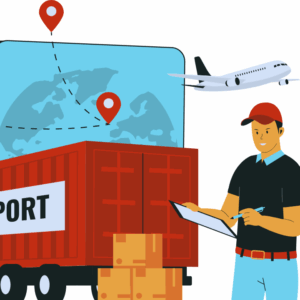
When you are shipping to countries that benefit from preferential trade agreements with the European Union, you’ll need a certificate of origin to prove the goods were manufactured in the EU. This can reduce or eliminate import duties in the destination country. The customs export declaration is another core step in the process, and it must be filed electronically through your country’s customs system. This declaration includes details such as product classification codes, descriptions, origin, and routing information.

The Freight Forwarder’s Role in Air Freight Shipping
Choosing the right freight forwarder is not just a matter of convenience; it’s a strategic decision that influences the success of your export operations. Freight forwarders serve as your logistics partner. They take full responsibility for organizing the movement of your cargo, ensuring that everything complies with local and international laws, and they act as your liaison with airlines, customs authorities, and ground handlers.
When you need air freight shipping, your forwarder begins by booking cargo space on a flight that aligns with your desired delivery timeline. They are experienced in navigating airline schedules, cargo capacities, and route planning so your goods travel the most efficient route possible. But their work doesn’t stop at booking flights. They also prepare every piece of required documentation—from the air waybill to the customs declaration—and ensure it complies with the regulations of both the country of origin and the country of destination.
Freight forwarders are also experts in customs clearance. They work with local customs brokers to ensure that your cargo passes smoothly through border checks and inspection points. This includes handling the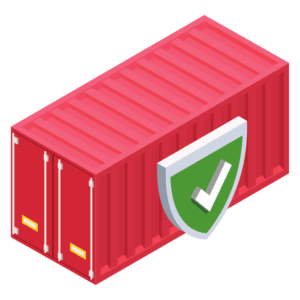
And finally, freight forwarders offer complete shipment visibility. Through modern logistics platforms, you can track your cargo in real-time, from pickup at your warehouse to final delivery at your customer’s doorstep. This visibility fosters trust with your customers and enables proactive planning in the event of unexpected delays.

There are several types of air freight services available depending on your logistics needs. The most comprehensive service is door-to-door. This means your freight forwarder handles the entire journey of the goods, from collection at your facility in Europe to delivery at the destination overseas. This service includes local pickup, export clearance, air transport, import clearance, and final delivery—all managed through one partner.
Another option is airport-to-airport shipping, which is ideal for companies that already have ground transportation partners at both the origin and destination. In this case, your forwarder handles the international flight portion, and you take responsibility for the rest. For businesses seeking to reduce shipping costs, consolidated freight services offer a valuable solution. Here, your cargo is grouped with other shipments in a shared container, lowering the cost per kilogram while maintaining reasonable delivery times.
When time is critical, priority freight or express shipping is your best bet. These services guarantee space on the next available flight and prioritize your cargo during the loading and unloading processes. This is especially useful for high-value goods or situations where delays could cause significant disruptions in your supply chain.
Adapting to Europe’s New Export Compliance Standards
In recent years, the European Union has introduced new regulatory frameworks aimed at making trade more sustainable and transparent. One of these is the Carbon Border Adjustment Mechanism, which affects the export of goods like steel, aluminum, and fertilizers. Exporters must now calculate and report the carbon emissions associated with their products. This information is required to avoid penalties and align with environmental regulations in destination markets.
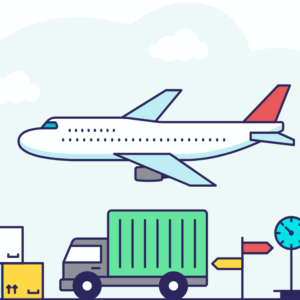
These regulations are not optional. They reflect the direction of global trade and the growing demand for transparency and accountability in supply chains. Working with an air freight forwarder who understands and monitors these changes helps your business stay compliant and competitive.
Frequently Asked Questions
What is the Harbor Maintenance Fee?
The Harbor Maintenance Fee is applied to goods entering the United States through ocean freight and helps maintain port infrastructure. It does not apply to air freight services, but it’s essential to know when your shipping strategy includes both air and ocean modes.
What are the maximum cargo dimensions for air freight?
While dimensions vary by airline, most routes accept standard pallet sizes and height limits. Oversized cargo must be planned and may involve higher freight costs or limited availability. Maintaining shipments within standard dimensions enables faster processing and lower rates.
What is the Verified Gross Mass Certificate?
This certificate confirms the total weight of a shipping container and is mandatory for ocean-bound cargo. While not required for air freight, it becomes essential when shipments switch from air to sea. It is part of the International Convention for the Safety of Life at Sea.
Do I need an EORI number to ship from Europe?
Yes. If your company exports goods from any European Union country, you must have a valid Economic Operator Registration and Identification number to interact with EU customs systems.
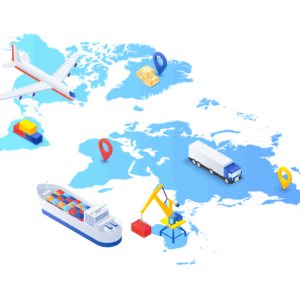
Freight forwarders provide expertise, tools, and global networks that minimize your administrative burden and shipping risks. They optimize routes, consolidate shipments, handle documentation, and ensure compliance, allowing your team to focus on growing your business.
Shipping from Europe involves a precise mix of regulation, documentation, and logistical planning. From customs compliance to airline coordination, every step has the potential to impact your delivery timeline, cost, and customer satisfaction. Whether you’re looking for air freight from the UK, handling international cargo to North America, or setting up long-term exports from Germany, the most brilliant move is working with an experienced freight forwarder who understands the entire process.
At ExFreight, our air freight delivery services offer complete visibility, instant quoting tools, and expert support at every stage. We help businesses simplify complex logistics and grow with confidence in international markets.
Take the next step today by requesting an instant air freight rate and experience the reliability of smart global shipping.


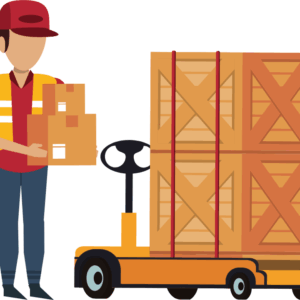

Leave A Comment
You must be logged in to post a comment.